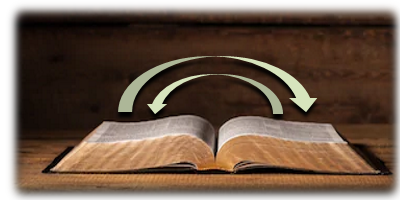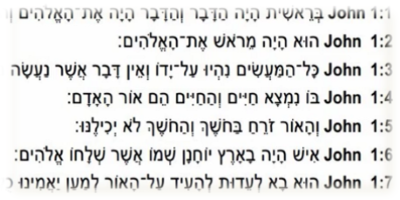I stumbled across an interesting “contradiction” in the Bible and thought that this would be a great “teaching moment.”
And said unto him, Hearest thou what these say? Jesus saith unto them, Yea; have ye never read, Out of the mouth of babes and sucklings thou hast perfected praise? (Matthew 21:16, KJV)
In this verse, Yeshua (Jesus) is quoting the Psalms:
Out of the mouth of babes and sucklings hast thou ordained strength because of thine enemies, that thou mightest still the enemy and the avenger. (Psalm 8:2(3), KJV)
Note the words in bold in the two passages above. The question is why is the New Testament quote of the Old Testament different? The answer is found in the Septuagint, a Greek translation of the Hebrew Bible that was created in the 2nd Century BC. Here is this verse from the Septuagint:
Out of the mouth of babes and sucklings hast thou perfected praise, because of thine enemies; that thou mightest put down the enemy and avenger. (Psalm 8:2, Septuagint - Rahlfs’ Translation)
There are three possible explanations for this “contradiction.”
- Yeshua was speaking in Greek and quoting the Greek Septuagint rather than the Hebrew Bible.
- The Hebrew text that we use today is the Masoretic Hebrew text, which dates to about 1,000 AD. This is 1,000 years after Yeshua. In the time of Yeshua there were different versions of Hebrew Bibles (scrolls actually). We know this because the Dead Sea Scrolls, which are copies of Hebrew scrolls from the time of Yeshua, do vary slightly from the Masoretic Hebrew texts. So, it is very possible that Jesus was speaking in Hebrew and quoting a Hebrew manuscript that used the word “praise” and not “strength.”
- Yeshua was speaking in Hebrew and was quoting a Hebrew manuscript that used the word “strength,” and this was recorded in a Hebrew New Testament text. When the Hebrew New Testament was translated into Greek, rather than translating the Hebrew text of Psalm 8:2 into Greek, the translator simply took the quote from the Septuagint, which is a translation of a Hebrew manuscript different from the one Yeshua used and included the word “praise” rather than “strength.”
I am of the opinion that Yeshua spoke Hebrew and Aramaic and not Greek and I believe he would have been quoting from the Hebrew Bible. So I believe that the last two options are the most likely.

Like what you’re discovering? Continue the journey from Bible reader to translator.
|





